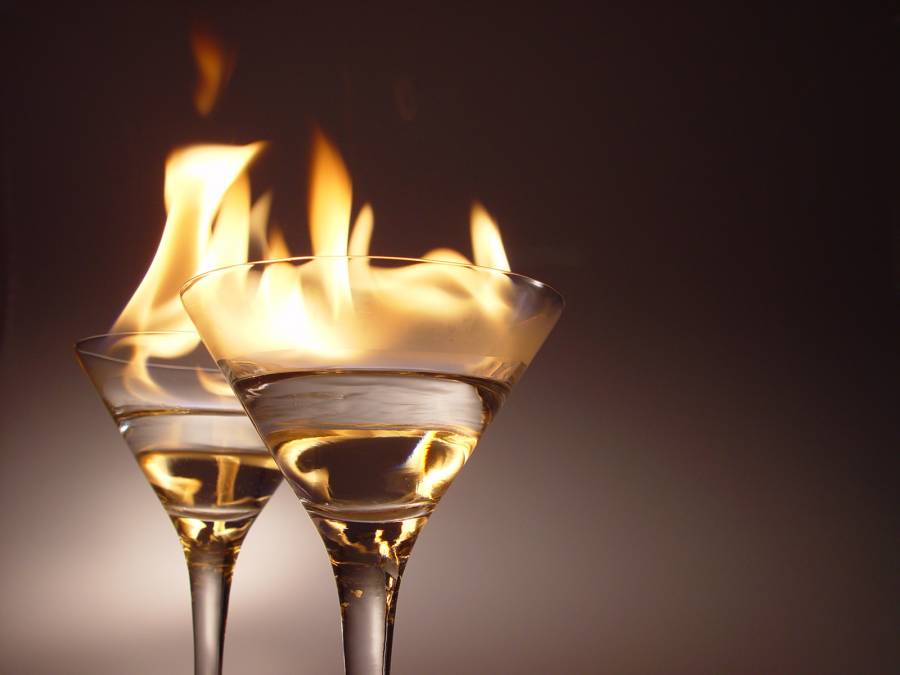Alcohol. It’s been around since as long as human beings have been able to write — in fact, some of the first pieces of decipherable writing are written beer recipes. How about that!
On the one hand, we have a drink that’s been with us since the beginning of time. On other hand, alcohol takes on a more negative light. Approximately 88,000 people die from alcohol-related deaths a year, making it the fourth leading preventable cause of death in the U.S., and saying nothing of the amount of people suffering from alcoholism.
Alcohol truly is a double-edged sword. But we’re not here to talk about the life & death effects of the world’s favorite drink — we’re here to talk about the more obscure health effects, both good and bad, of alcohol.
The Bad Stuff
So let’s get the bad stuff out of the way first. Obviously there are worse things that can happens to you, but:
- Alcohol causes nightmares. Sure, everybody’s heard the phrase, let’s have a little nightcap, but that’s probably because they don’t know much about sleep homeostasis. Alcohol destroys this process, which is important in the body for sleep regulation, by overstimulating REM sleep and causing you to dream baaaad dreams.
- Alcohol causes acid reflux. Anybody who suffers from gastroesophageal reflux disease (GERD) will tell you: “stay away from the booze!” Anything more than one drink (and even then, for some) is a potential harbinger of heartburn.
- Alcohol is heavy in calories. Seriously. All alcohol is made of is fermented sugars and carbohydrates, the infamous foils of Atkins dieters the world over. Plus, when you add in all of extra calories found in beer and mixers, those calories start to add up. If you’re trying to lose weight, avoid the alcohol.
- Alcohol decreases fertility. While it’s a no-brainer that you don’t drink while pregnant, it’s now been shown that you shouldn’t drink even if you’re trying to get pregnant. Studies have shown that women over 30 who drank seven or more alcoholic beverages were twice as likely not to conceive.
- Alcohol makes you sweat. Because alcohol causes you to become dehydrated, your body may begin to have a hard time keeping a regulated temperature. This causes the blood vessels in your skin to dilate, sometimes get red, and leak sweat. Night sweats in particular have been linked to alcohol consumption.
Lesser Known Benefits of Alcohol:
Now that we’ve gone over the bad side of things, let’s take a look at some of the lesser known, beneficial aspects of alcohol:
- Alcohol is linked to lower risk of stroke and alzheimer’s. In stark contradiction to the reality that too many drinks will severely hinder cognition, drinking a moderate amount may actually help your brain. The Journal of Alzehimer’s Disease concluded that alcohol was “associated with selective protective effects” of the cognitive functions of the moderate drinkers among the 489 women they studied. A separate study found that alcohol’s blood-thinning properties may protect against strokes.
- Alcohol lowers the risk of cardiovascular disease. While heavier drinking is associated with increased risk of heart failure, research published in the British Medical Journal found that moderate drinkers were “less likely than non-drinkers to turn up at their doctor with angina, heart attack, heart failure, ischaemic stroke, circulation problems caused by a build-up of fat in the arteries and aortic aneurysm than non-drinkers,“ reports The Guardian.
- Alcohol can help prevent against the common cold. Carnegie Mellon University’s Department of Psychology found that “moderate alcohol consumption was associated with decreased risk [of catching the cold] for nonsmokers.”
- Alcohol can help you relax, in the right doses. Most of us know how refreshing it feels to have a drink at the end of a long day — however, most of us also know how uncomfortable drinking too much can be as well. Nevertheless, according to several studies “moderate drinkers suffer less from depression than non-drinkers,” reports healthyplace.com. A couple of drinks (but not too many) can mirror the effects of your body on holiday by releasing dopamine and promoting relaxation.
Remember: moderation is absolutely key. In almost every case, the negatives of drinking alcohol are brought about by over-consumption, while the benefits are negated by the same. Enjoy your beverages (and their health benefits) responsibly.

